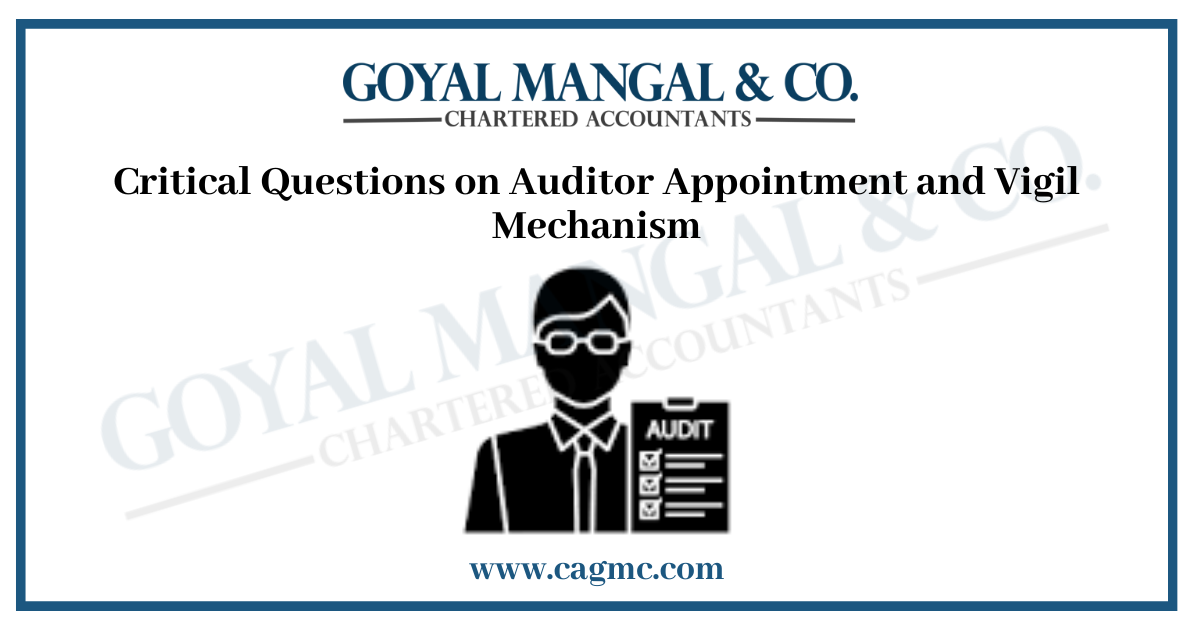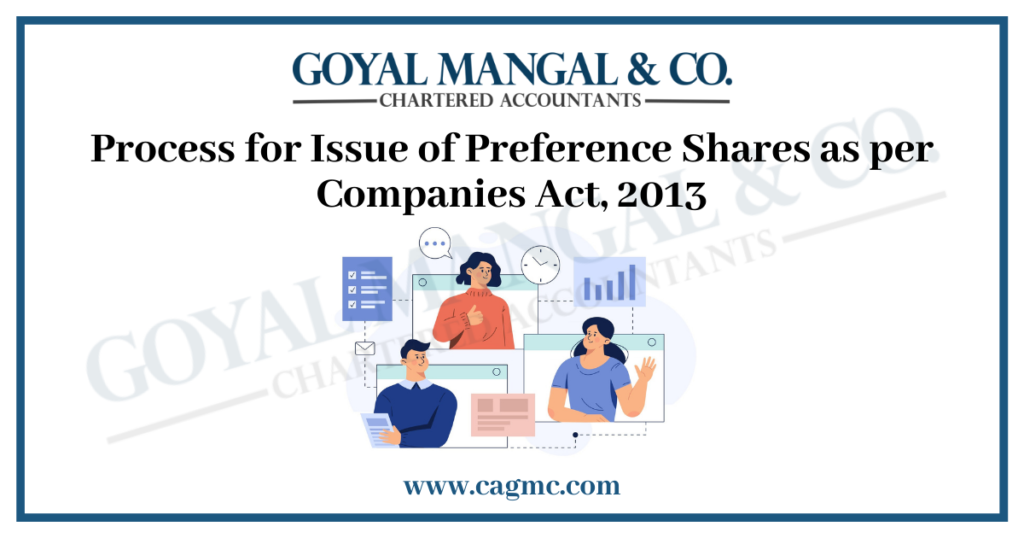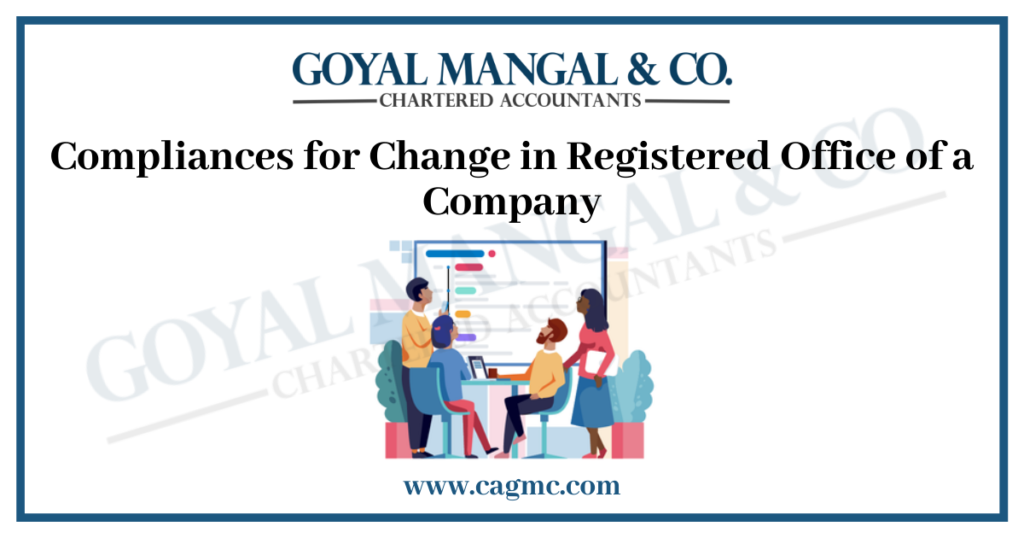
The auditor plays an important role in the management and administration of the company. It acts as a watchdog of the members who report to them in their Audit Report the status and irregularities in the management of the company’s affairs so that the members can take judicious action in these respects. The auditor ensures that the financial statements give a true and fair view of the company’s affairs. In this article, we will discuss the critical questions on Auditor Appointment and Vigil Mechanism.
Auditor appointment and vigil mechanism
Auditor appointment and vigil mechanism are two critical aspects of corporate governance. The appointment of an auditor ensures that the financial statements of the company are accurate and reliable, while a vigil mechanism provides a mechanism for employees and other stakeholders to report any unethical behavior or fraud. They promote transparency, accountability, and ethical behavior. By addressing the critical questions associated with these issues and implementing best practices, companies can build trust and confidence among their stakeholders and contribute to long-term success and sustainability.
What is the importance of auditor independence?
Auditor independence is essential because it ensures that the auditor is not influenced by any external factors that may compromise their objectivity. An independent auditor is free to express an opinion on the financial statements without fear of any repercussions from the company’s management or other stakeholders. To maintain independence, auditors should not have any financial or personal interests in the company being audited, and they should not provide any non-audit services to the company.
What are the responsibilities of the audit committee in auditor appointments?
The audit committee of the board of directors is responsible for overseeing the auditor appointment process. The committee should evaluate the qualifications and independence of the auditor and make a recommendation to the board of directors. The committee should also monitor the auditor’s performance and independence during the audit process and ensure that any issues or concerns are addressed.
What is the role of internal auditors in corporate governance?
Internal auditors are responsible for evaluating the company’s internal controls, risk management processes, and compliance with applicable laws and regulations. They provide recommendations to management on how to improve processes and mitigate risks. The internal audit function is an essential part of corporate governance because it provides independent assurance to the board of directors and other stakeholders that the company’s internal controls are effective and that risks are being managed appropriately.
What are some best practices for implementing a vigil mechanism?
Some best practices for implementing a vigil mechanism include providing multiple reporting channels, ensuring that complaints are investigated promptly and thoroughly, and protecting the confidentiality of complainants. Companies should also provide regular training to employees and stakeholders on the importance of reporting misconduct and the proper procedures for doing so. It is also essential to establish a culture of transparency, where employees and stakeholders feel comfortable reporting any instances of misconduct without fear of retaliation.
Benefits of having an effective vigil mechanism
An effective vigil mechanism can help companies identify and address misconduct and other unethical behavior early before it escalates into a more significant problem. This can help prevent reputational damage, legal liabilities, and financial losses. An effective vigil mechanism can also promote a culture of transparency, accountability, and ethical behavior, which can help attract and retain customers, employees, and investors.
Critical Questions on Auditor Appointment
Some critical questions on auditor appointment are as follows-
- What is the process for appointing an auditor?: The process for appointing an auditor can vary depending on the jurisdiction and the company’s size. However, it typically involves a proposal from the company’s board of directors to shareholders at an annual general meeting. The shareholders then vote on the appointment of the auditor. In some cases, the company’s audit committee may also be involved in the appointment process.
- What are the qualifications required for an auditor?: The qualifications required for an auditor will depend on the jurisdiction in which the company operates. However, in most cases, auditors are required to be members of a professional accounting body, such as the Institute of Chartered Accountants or the Association of Chartered Certified Accountants. They must also have relevant experience and training.
- How does an auditor maintain independence?: Auditors must maintain independence to ensure that they can perform their duties without bias or undue influence. They can achieve this by avoiding any financial or personal relationships with the company they are auditing, and by adhering to professional ethical standards.
- How is an auditor’s performance evaluated?: An auditor’s performance is typically evaluated by the company’s audit committee or board of directors. This evaluation may include an assessment of the auditor’s competence, the quality of their work, and their adherence to professional standards.
Critical Questions on Vigil Mechanism
Below are some critical questions on the vigil mechanism as-
- What is a vigil mechanism?: A vigil mechanism is a system that allows employees and other stakeholders to report any instances of unethical or illegal behavior within a company. The mechanism is designed to encourage whistleblowers to come forward without fear of retaliation.
- How is a vigil mechanism implemented?: A vigil mechanism can be implemented in a variety of ways, depending on the company’s size and structure. It may involve the establishment of a hotline, email address, or other reporting mechanism. The company may also appoint a designated person or committee to receive and investigate reports of wrongdoing.
- What are the benefits of a vigil mechanism?: A vigil mechanism can help companies identify and address instances of unethical behavior, which can help protect the company’s reputation and prevent financial losses. It can also create a culture of transparency and accountability, which can improve employee morale and retention.
- How can a company ensure the effectiveness of its vigil mechanism?: To ensure the effectiveness of a vigil mechanism, companies must take steps to promote awareness of the mechanism among employees and other stakeholders. They must also ensure that reports of wrongdoing are investigated promptly and that whistleblowers are protected from retaliation. Regular audits of the mechanism can also help identify any areas that require improvement.
How can companies promote a culture of ethics and accountability?
Companies can promote a culture of ethics and accountability by establishing a code of conduct that sets out the company’s values and expectations for behavior. The company should also provide regular training to employees on ethical behavior and ensure that the code of conduct is communicated effectively. The company’s leadership should also lead by example and demonstrate a commitment to ethical behavior and accountability. Finally, the company should establish appropriate incentives and sanctions to reinforce ethical behavior and discourage misconduct.
Final words
The appointment of auditors and the implementation of a vigil mechanism are critical components of corporate governance. Companies must ensure that they have robust systems in place to appoint qualified auditors and to identify and address instances of unethical behavior. By addressing these critical questions, companies can help create a culture of transparency and accountability that benefits all stakeholders.


